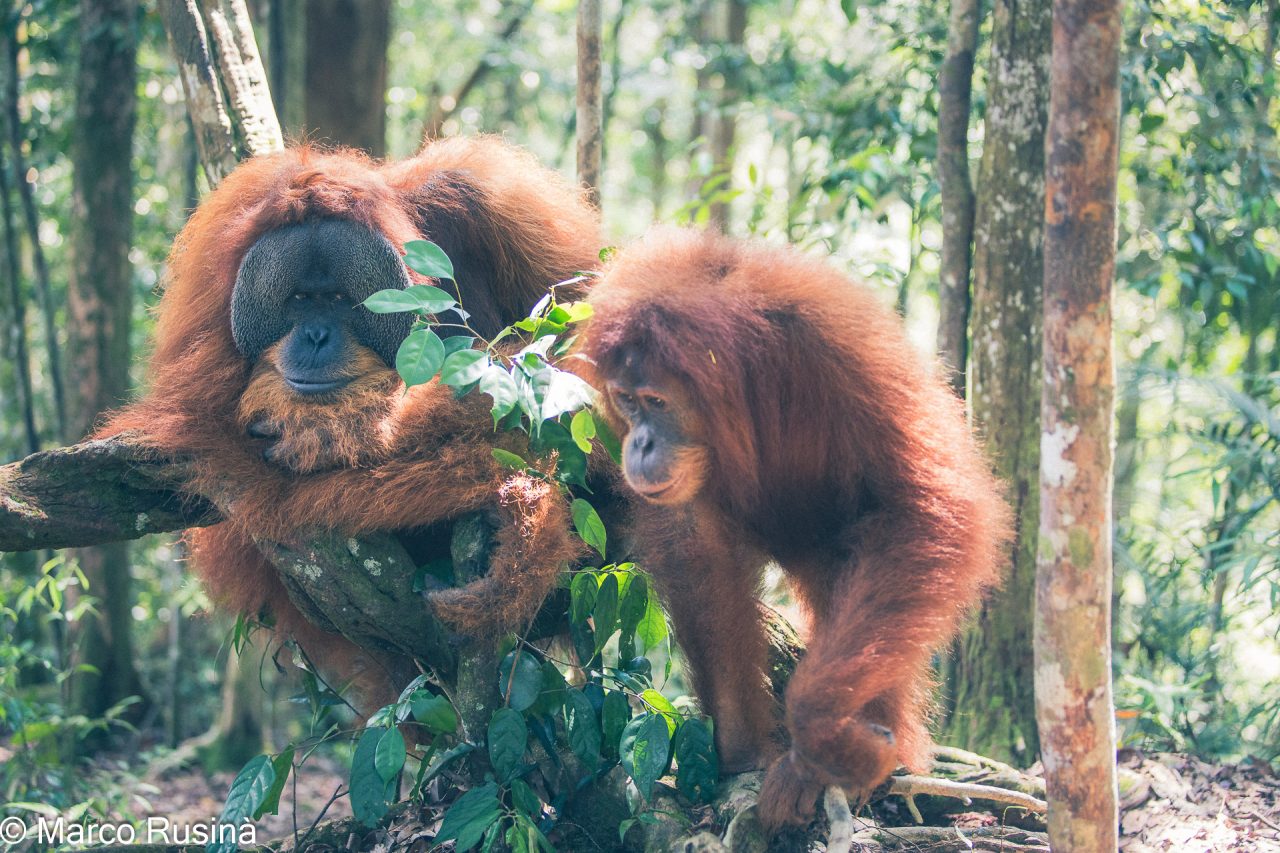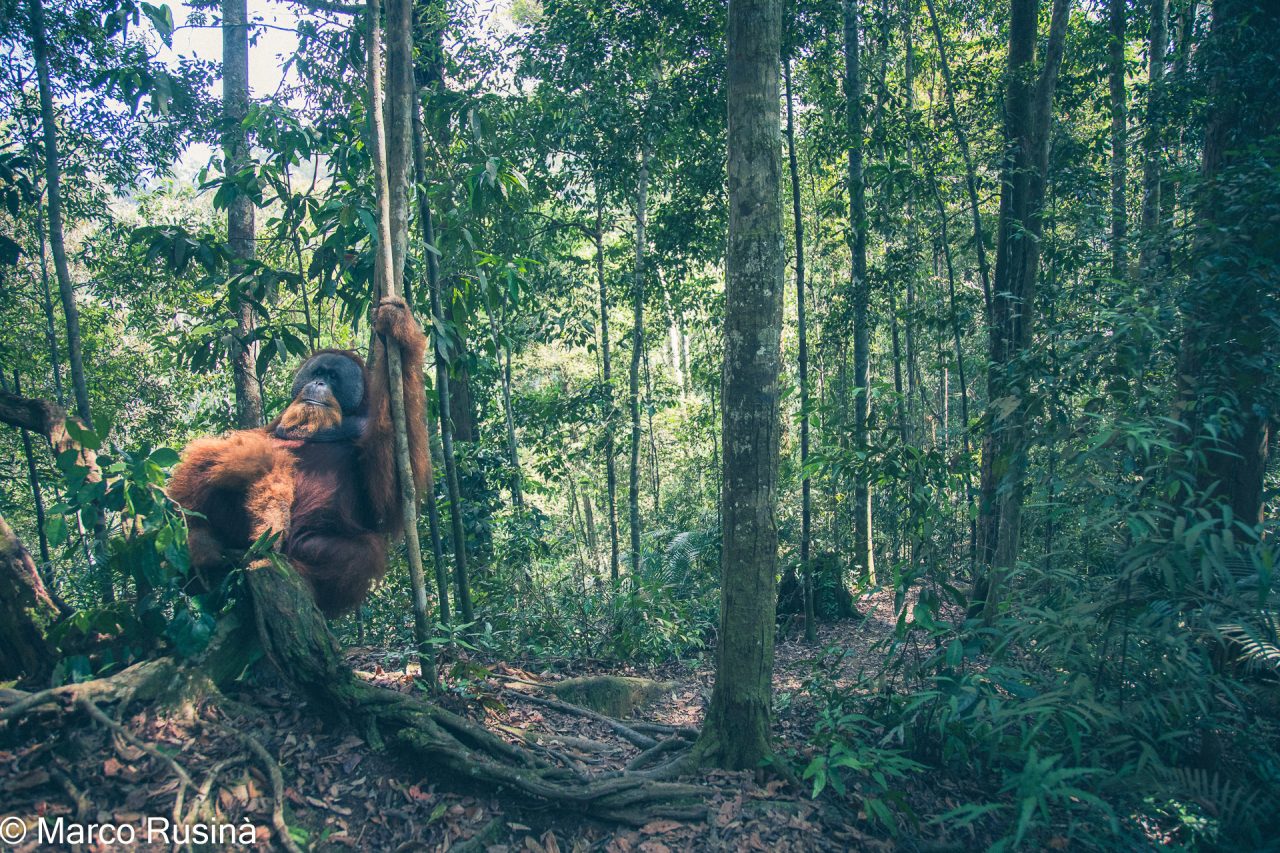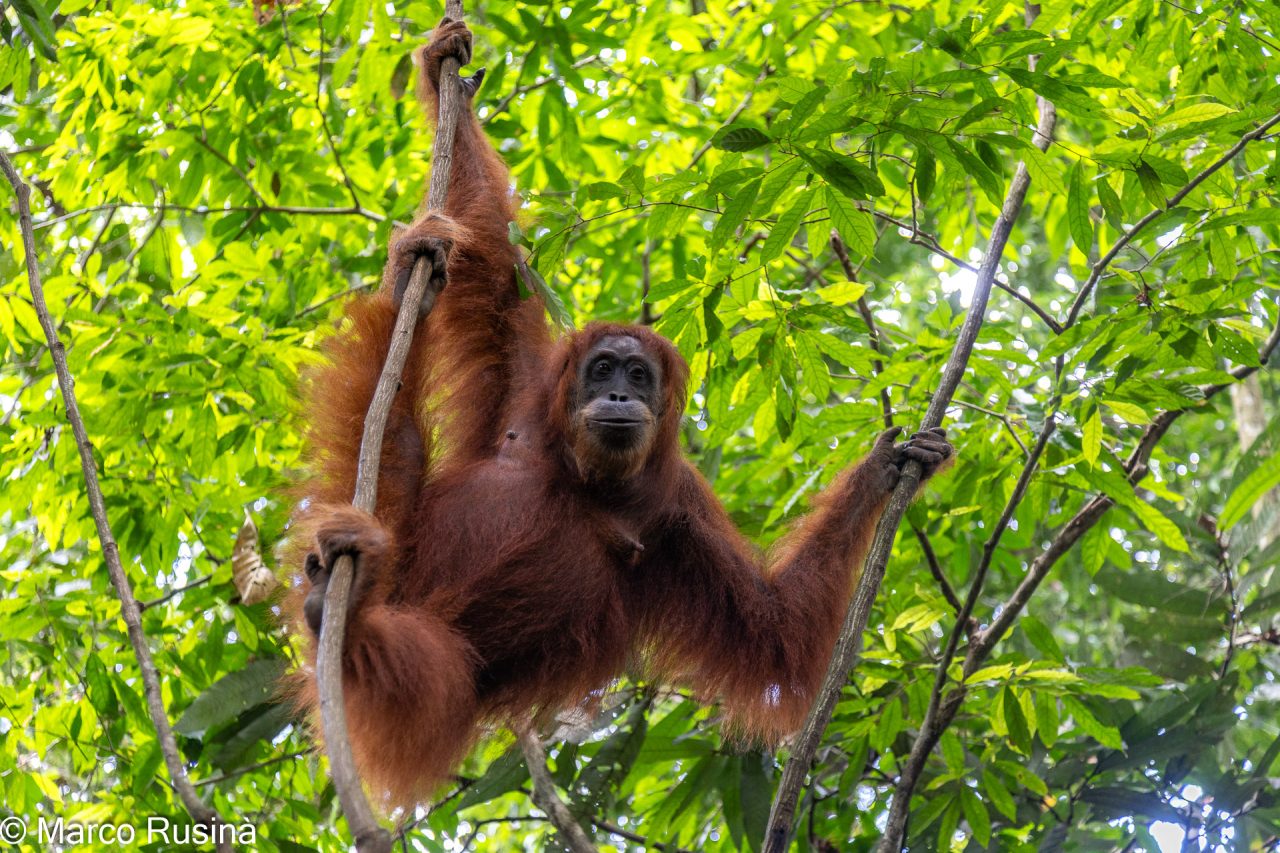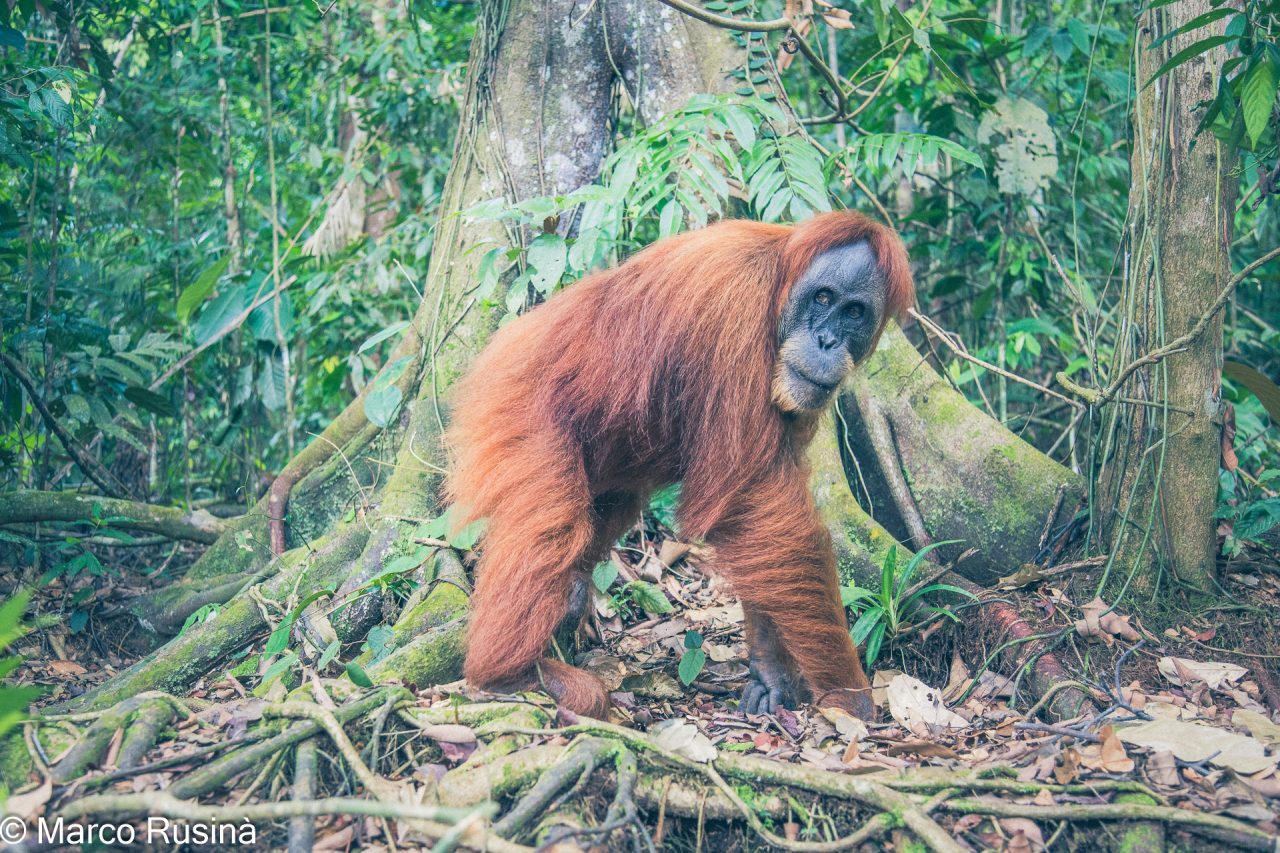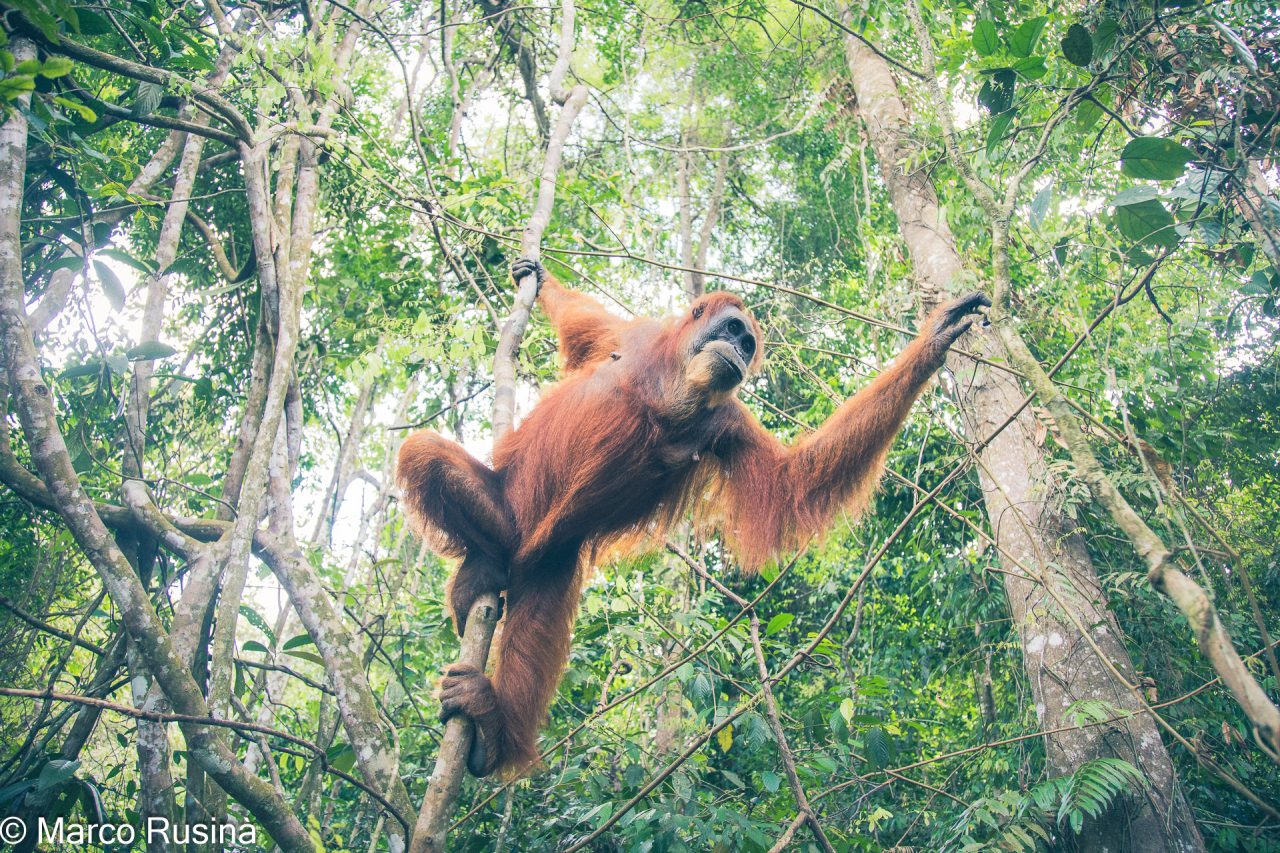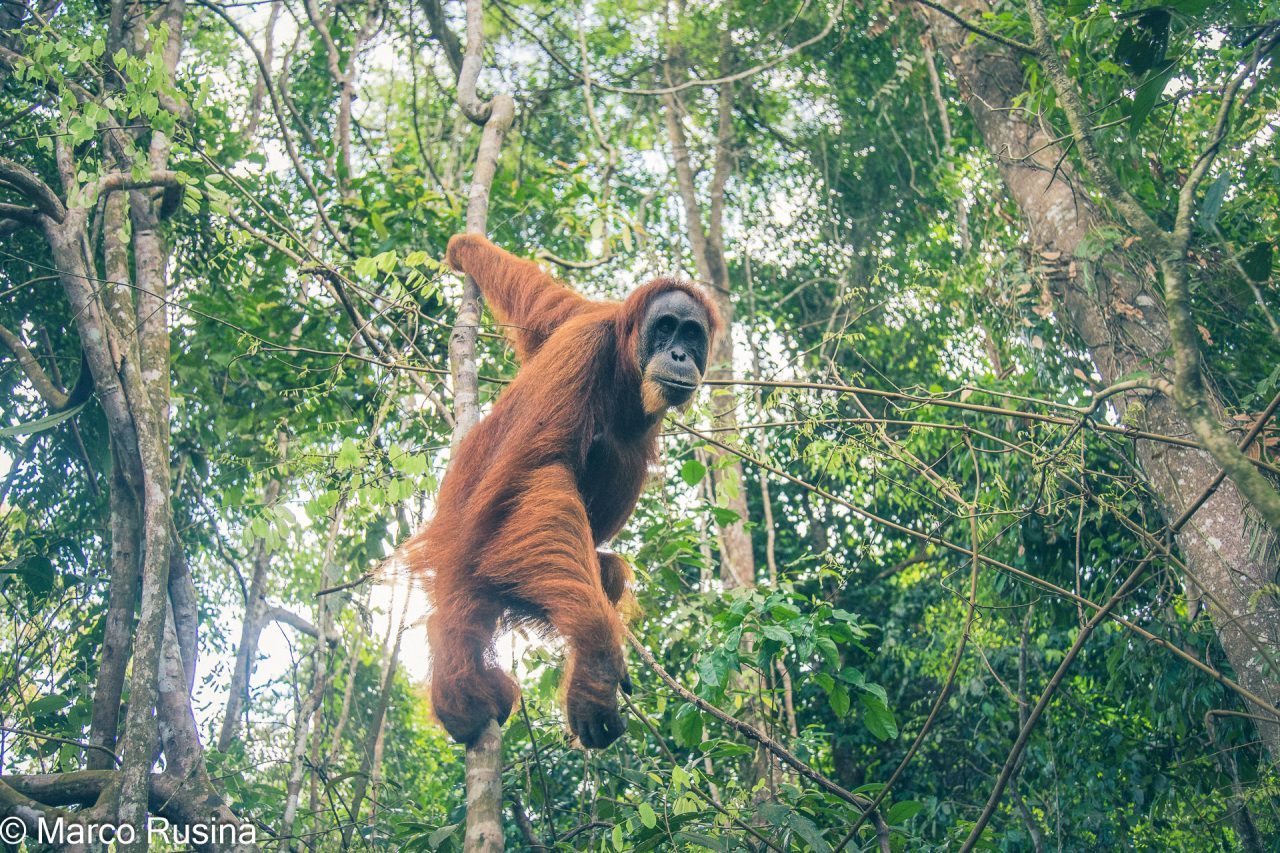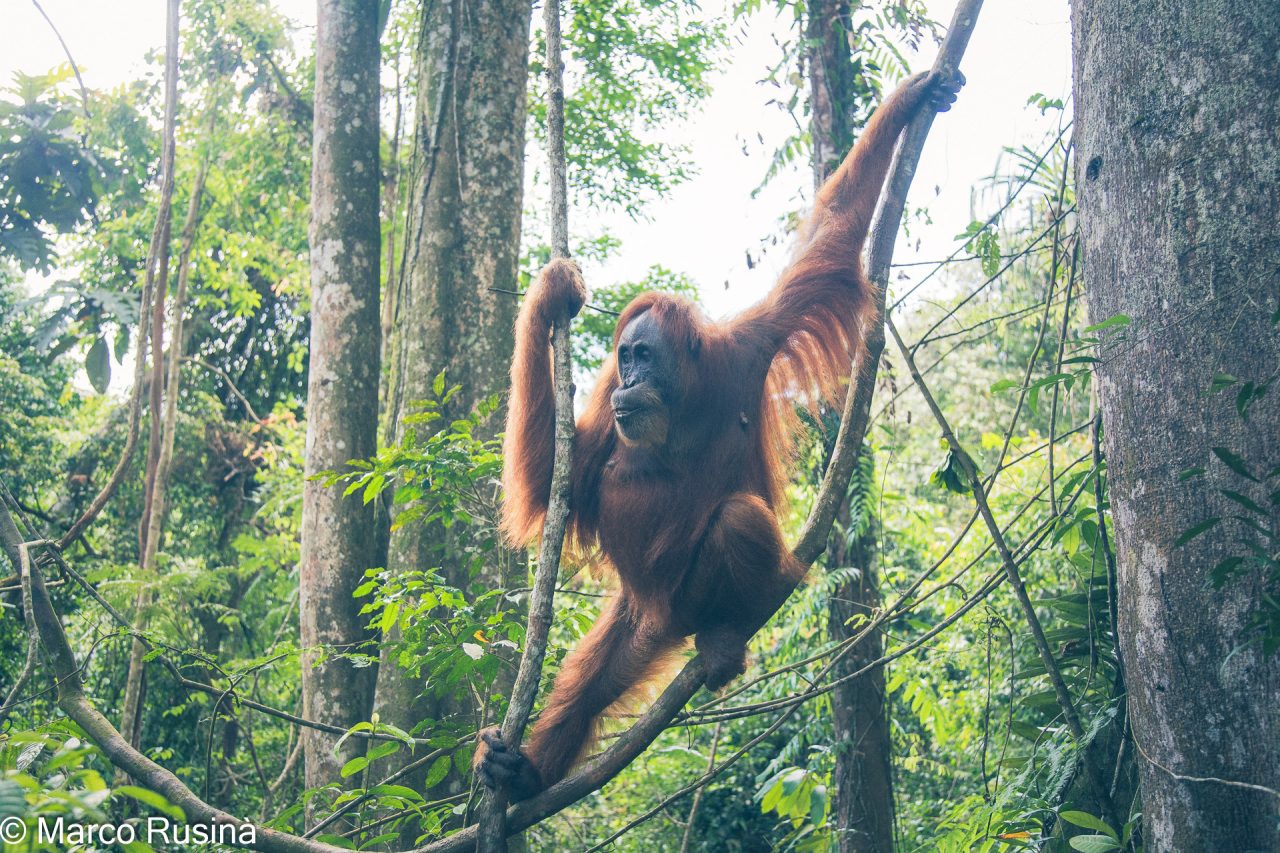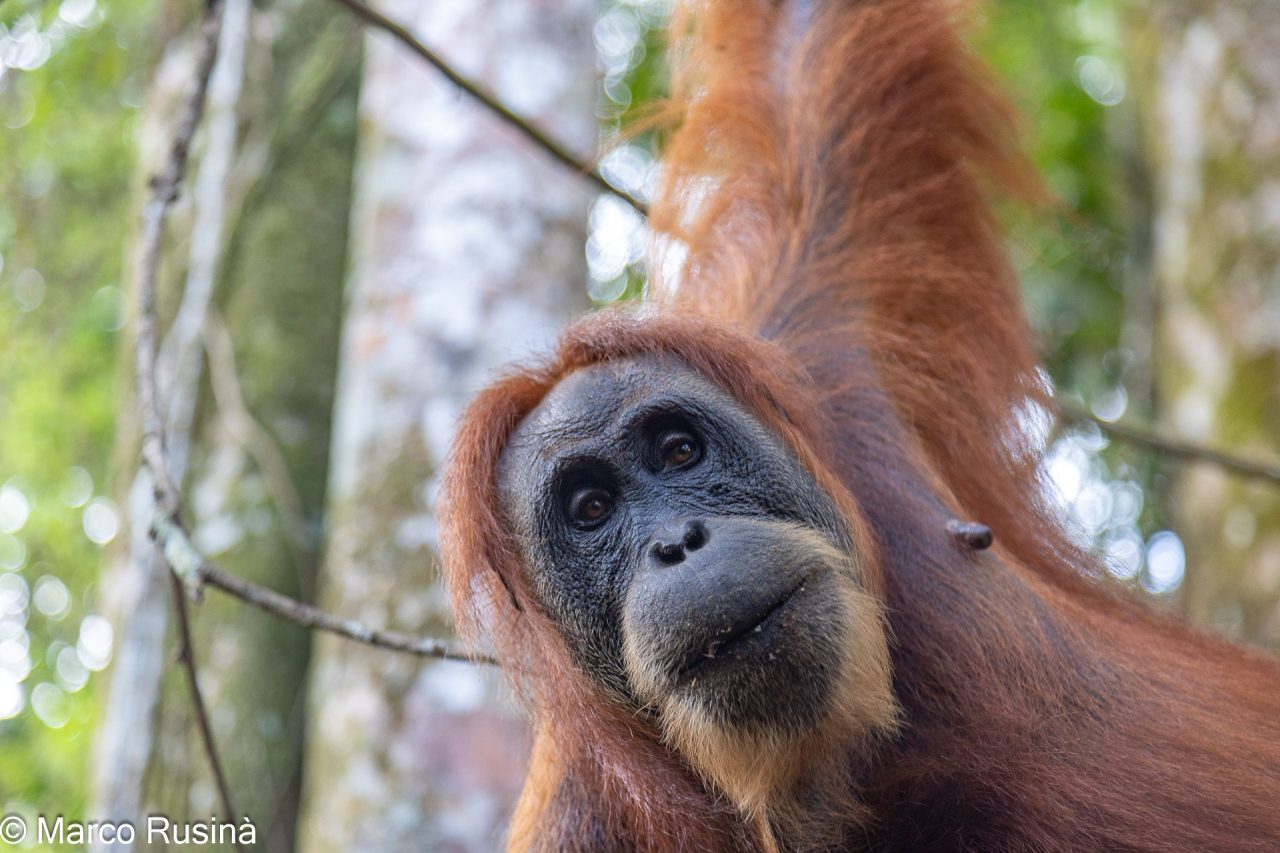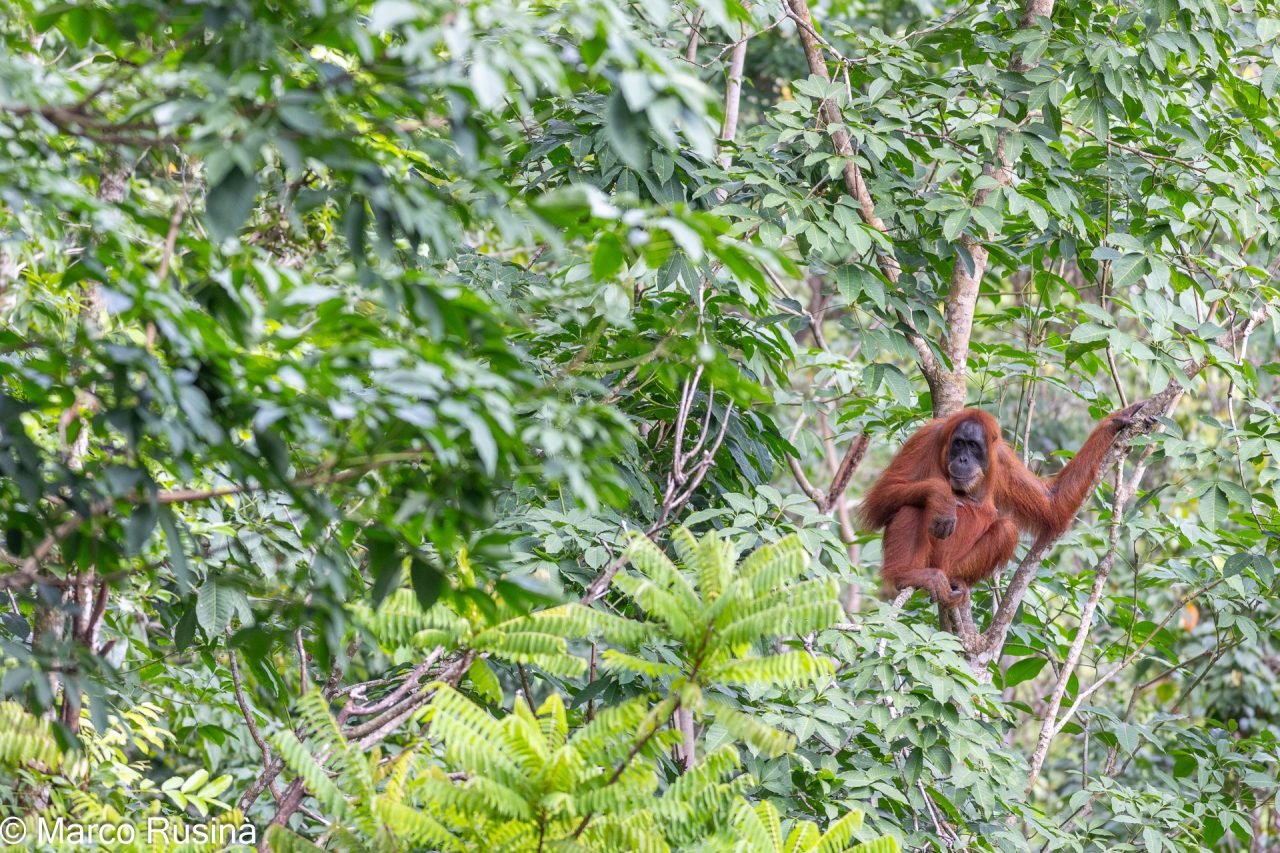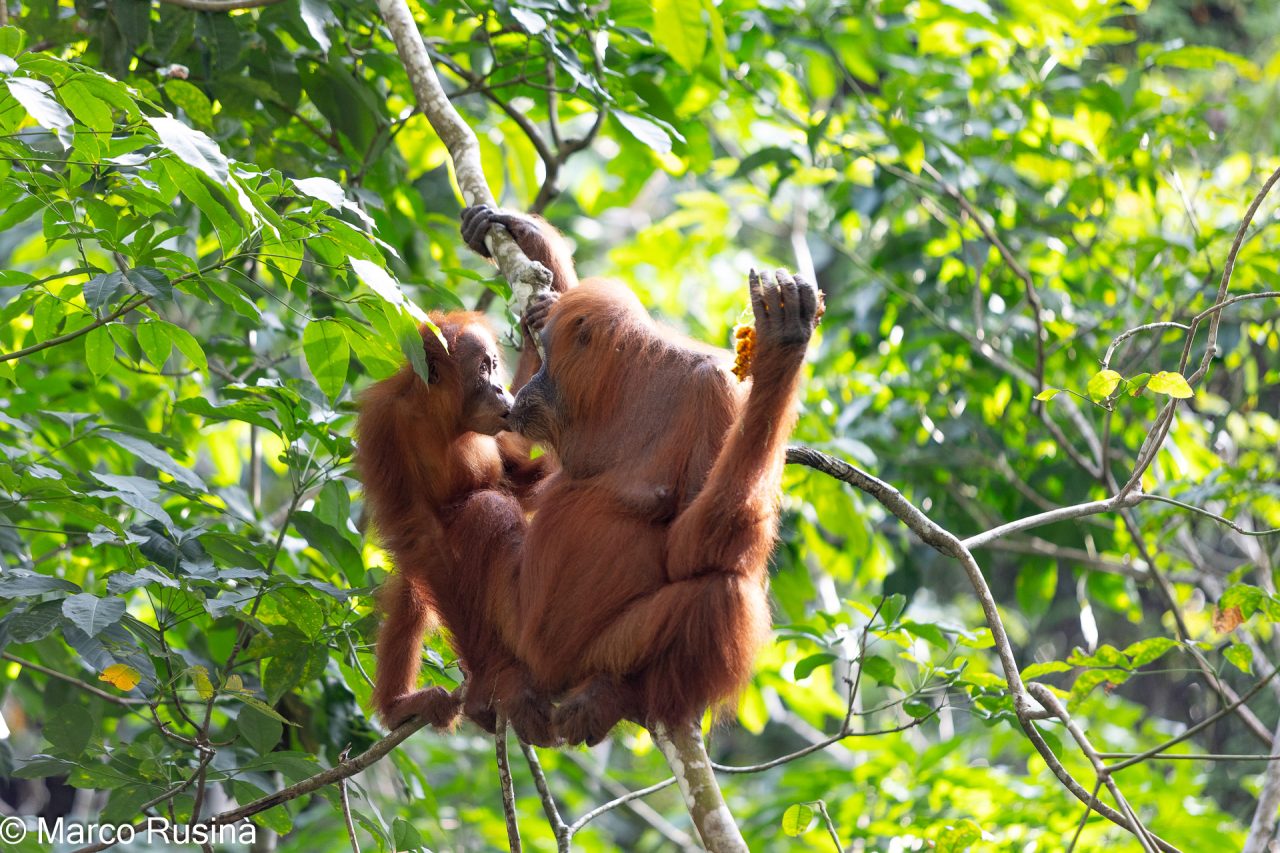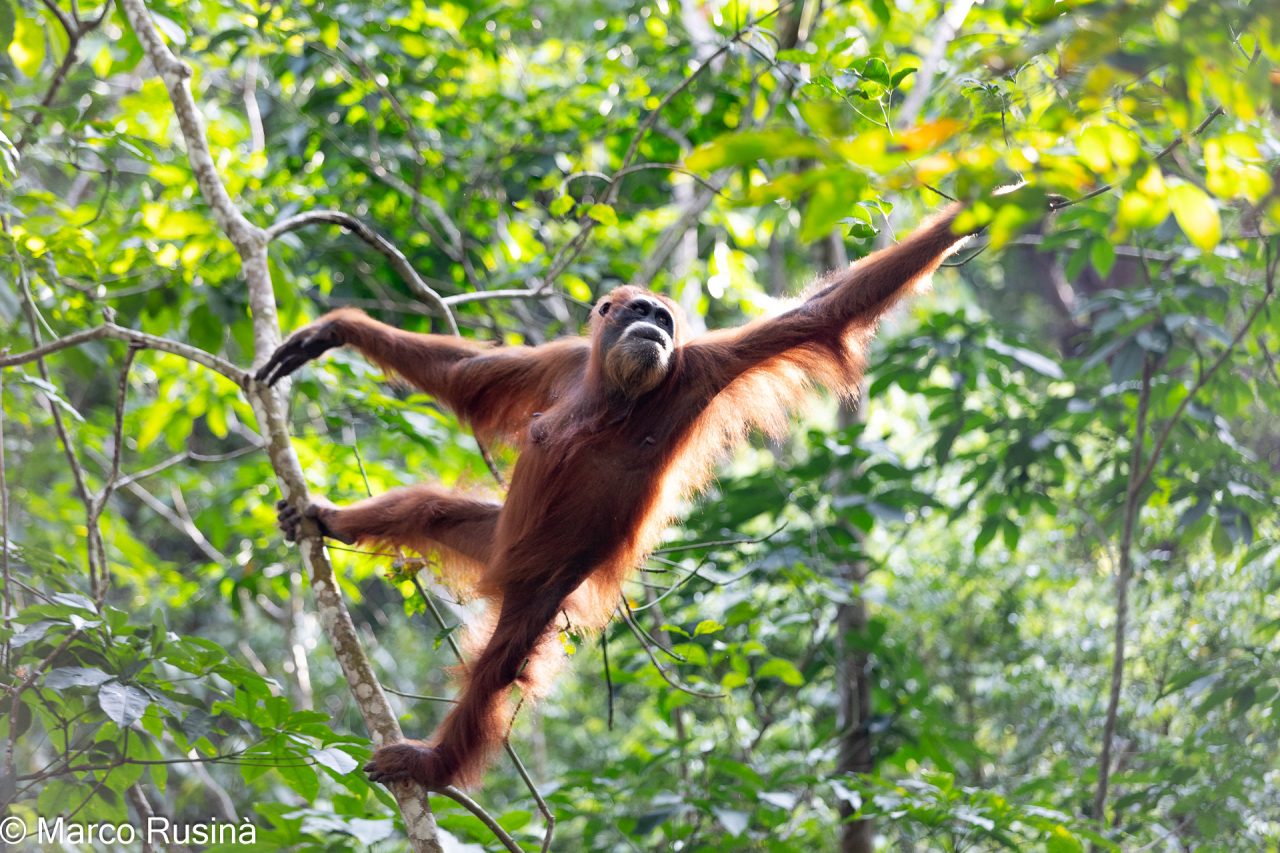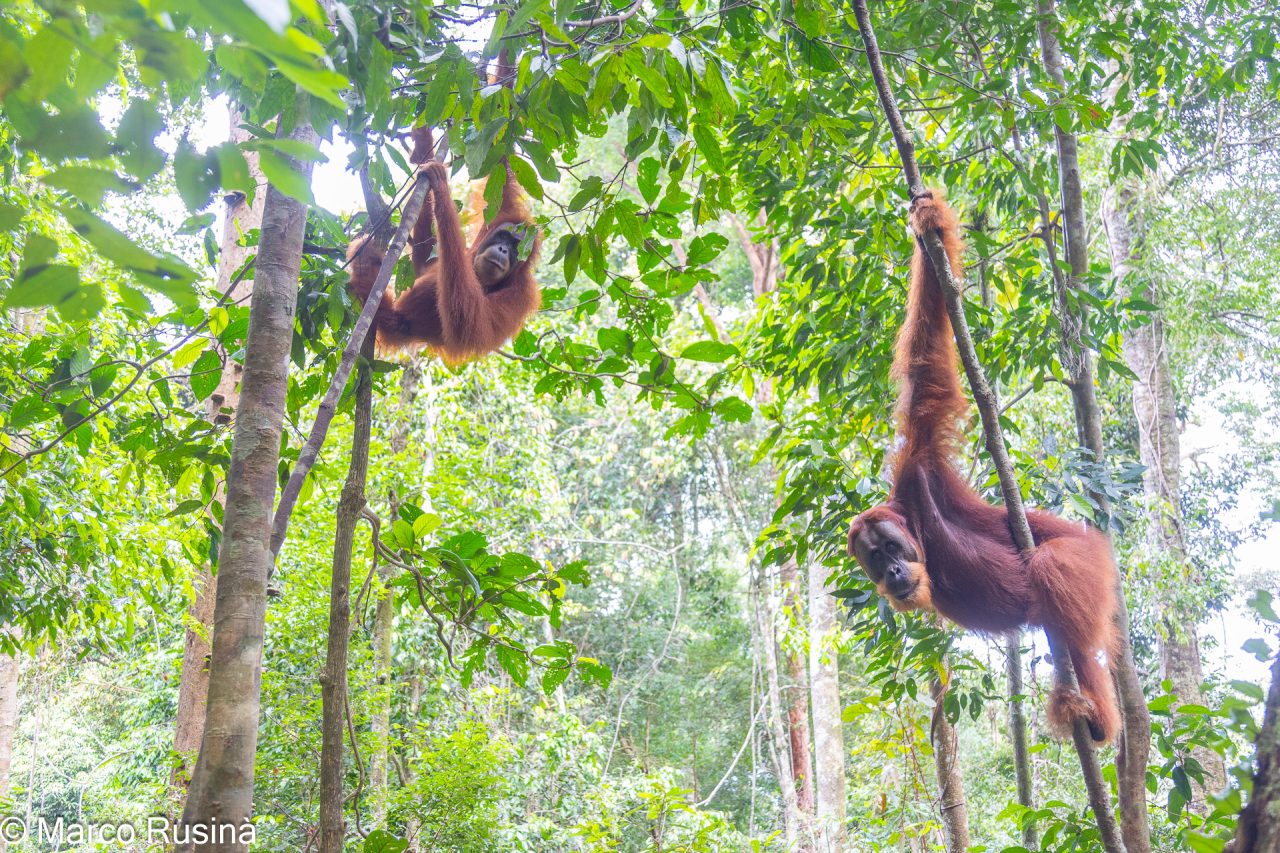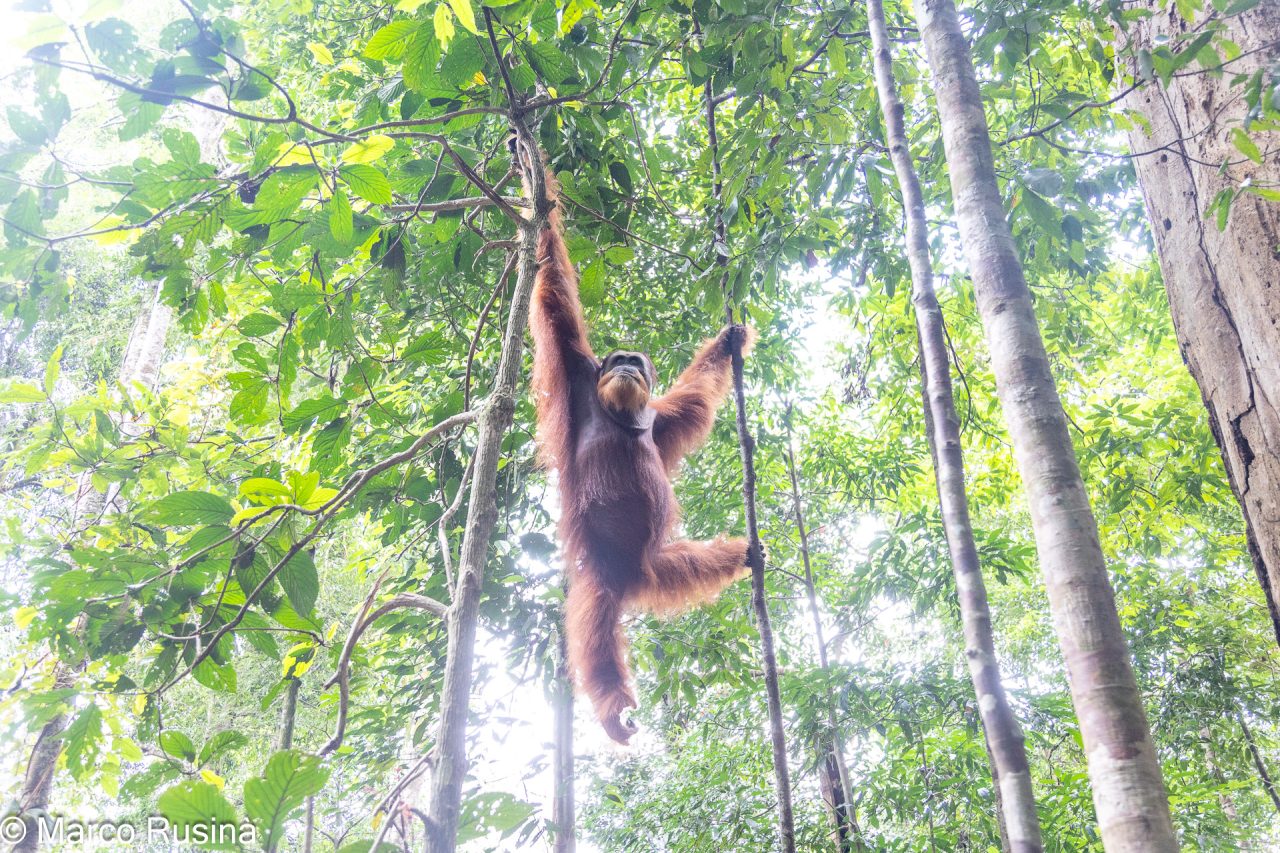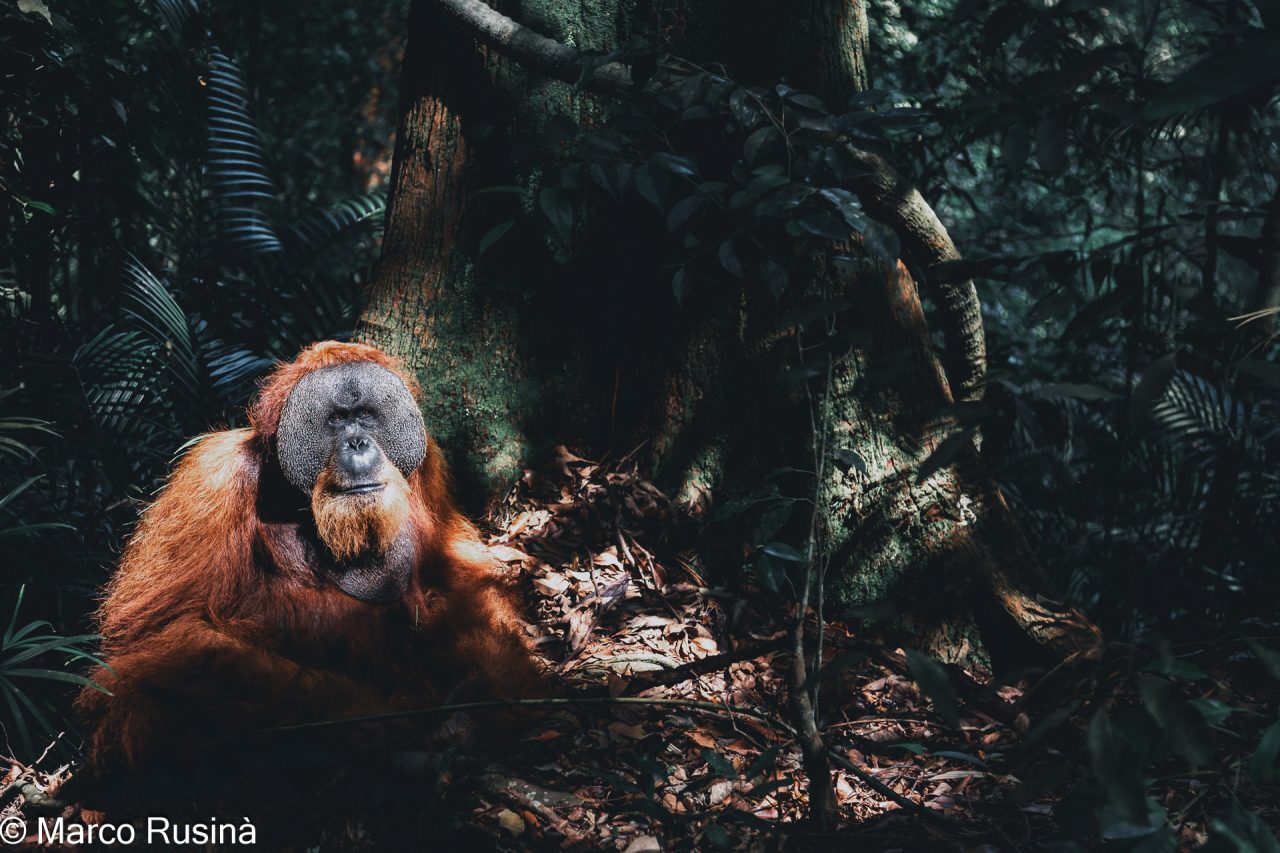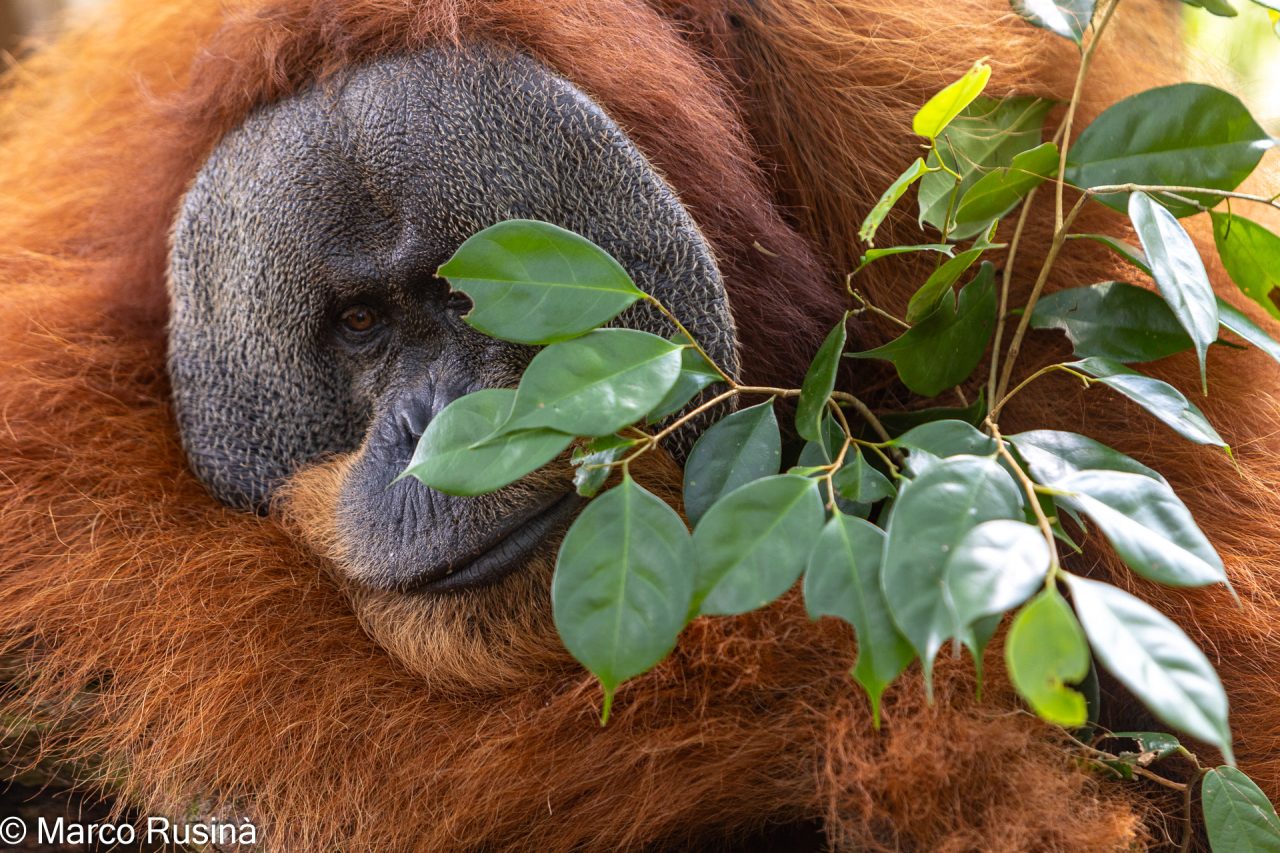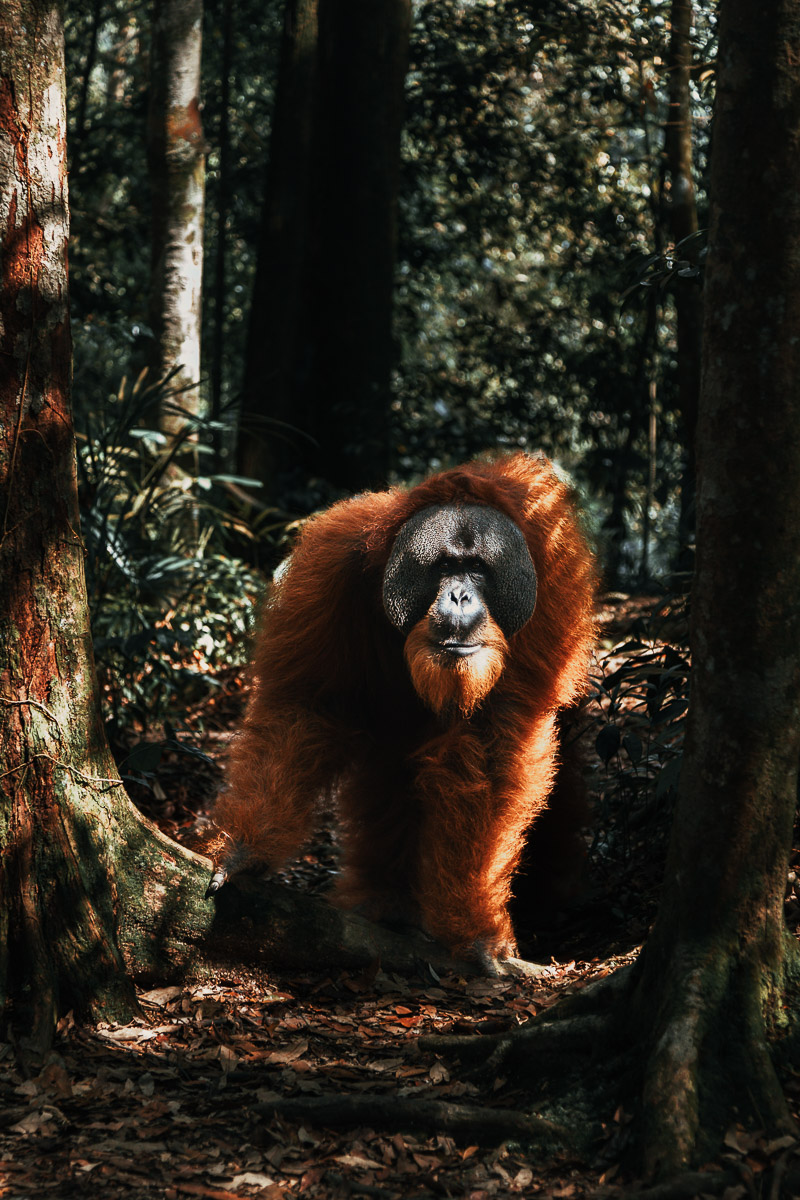The orangutan spends most of its time in the trees where it feeds, sleeps and reproduces, coming down to the ground only occasionally.
It dedicates almost the whole day to searching for food, its diet is mainly composed of fruit, but it also feeds on leaves, honey and insects, small reptiles and occasionally eggs.
The most recent census estimates the presence of 13,846 individuals; the data on the Bornean orangutan are less precise and current, estimating a population of around 55,000 animals; there are just 800 specimens of the Tapanuli orangutan.
Habitat loss constitutes the main threat to the survival of the orangutan which has seen its historical range increasingly restricted due to deforestation and continuous fires. On the islands of Sumatra and Borneo, the forests where the orangutan lives are being destroyed at an ever-increasing rate: trees are incessantly cut down to make way for crops, including palm oil and acacia oil, for the production industrial paper pulp and palm oil. As a consequence of the reduction of the forest area, orangutans increasingly invade agricultural areas in search of food, causing damage to crops and increasing the opportunities for conflict with local communities.

